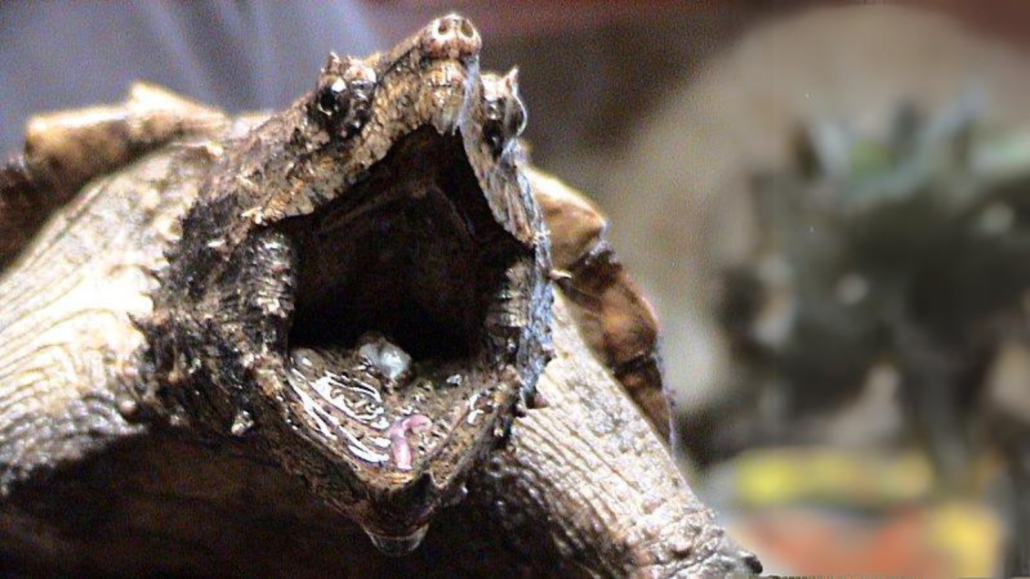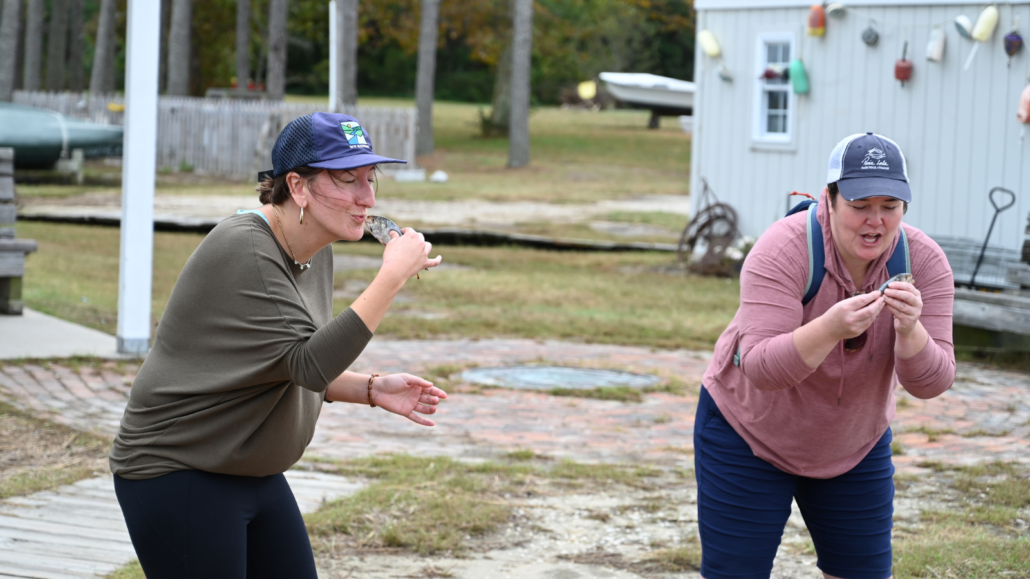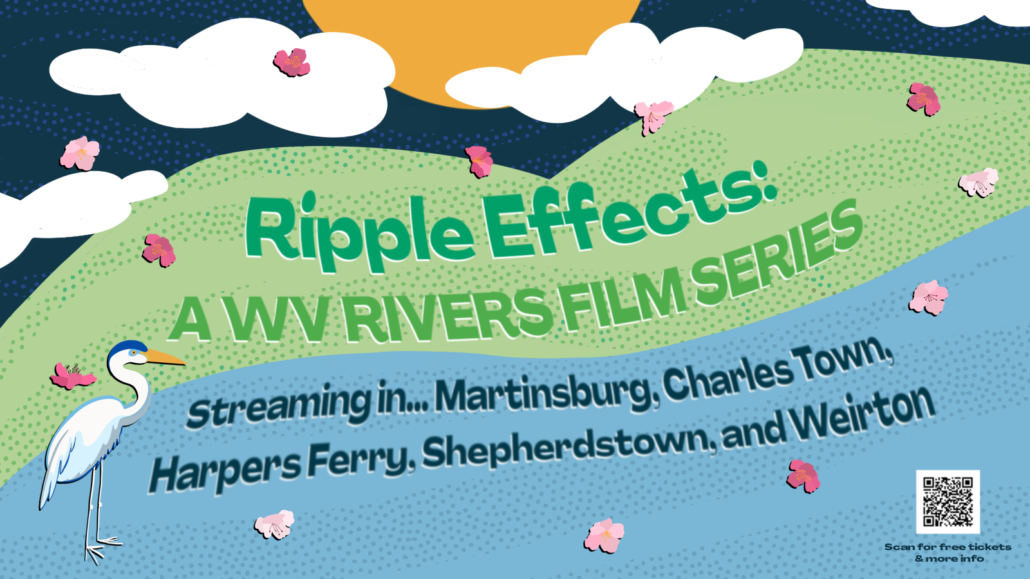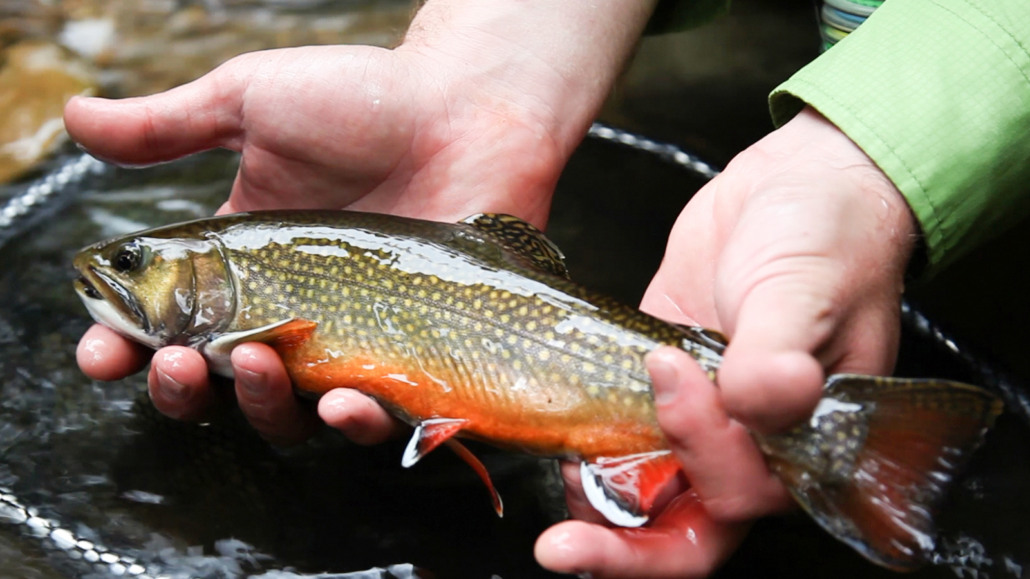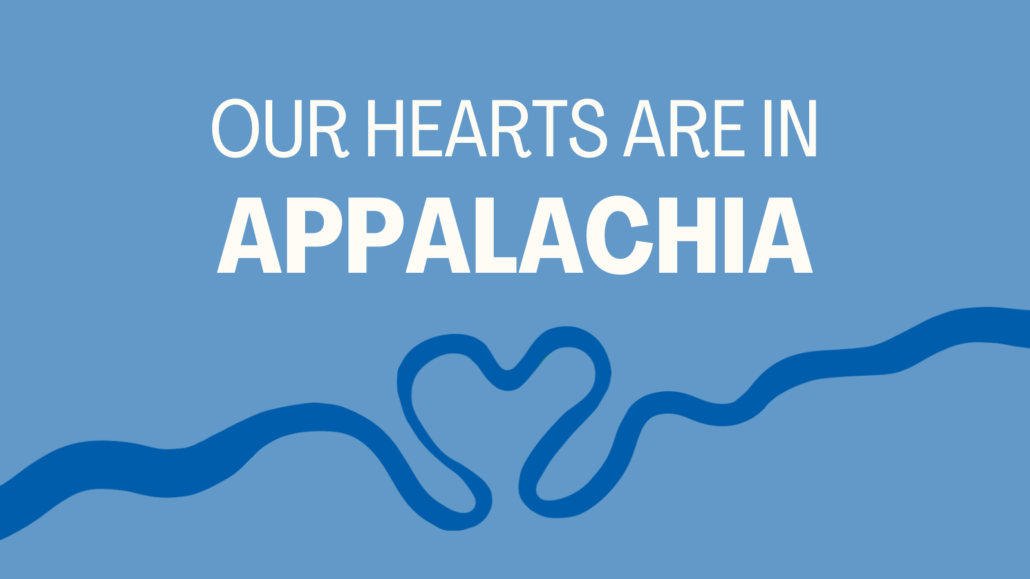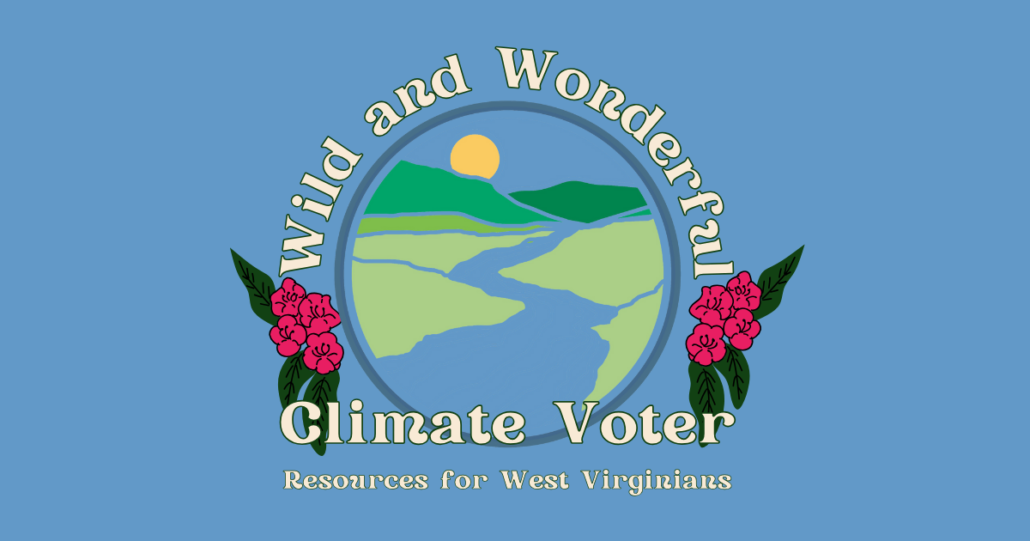Updates from WV Rivers Coalition
October 2024
Tales from the Riverbank with WV Rivers & Friends
Do you know the legend of the giant turtle lurking in West Virginia’s rivers? “Alligator Snapping Turtle” by LA Dawson is licensed under CC BY-SA 2.5.
Spooky season is upon us, and it’s a great time to sit near a bonfire and tell scary stories. West Virginia has a rich tradition of folklore, including ghost stories, legends, tales of cryptids, and other folklore. (Though science generally disagrees, these legendary spectacles just may be out there.) Here at West Virginia Rivers, we love a good folk tale — especially when it’s associated with one of our beautiful rivers or streams.
For instance, there’s the Ogua, a cryptid that looks like a giant alligator snapping turtle and lives in the Monongahela, Ohio, and Allegheny Rivers. Some folks claim it has two heads and weighs up to 500 pounds — definitely not something you want to meet when you’re freshwater snorkeling!
This month, we’ve decided to partner with some folklorists who will be telling us creepy, scary stories and also helping us to learn about the role folklore plays in all our lives, with a special focus on rivers, streams, and creeks in the Mountain State. Stay tuned!
-Lisa Di Bartolomeo
Special Projects Manager
Kissing Fish and Shrinking Islands – Maria Russo’s Chesapeake Bay Adventure
Maria Russo and Amy Wyant, the NY State Lead of the Choose Clean Water Coalition, share a lighthearted moment during a recent trip to the Chesapeake Bay — kissing fish for good luck while representing the headwaters of this vital watershed!
Fun Fact: Our Clean Water Campaign Coordinator Maria Russo serves as the West Virginia State Lead for the Choose Clean Water Coalition, the group advocating for the Chesapeake Bay restoration. Maria recently returned from an unforgettable trip to the Chesapeake Bay with our partners, where she learned firsthand about a curious local superstition: kiss every fish you put in the crab pot, or risk bad luck! Maria’s first time catching a crab may have had something to do with her following this quirky bit of lore.
Beyond crabbing, the trip offered Maria some truly grounding and eye-opening experiences. She stayed on the island of Port Isobel, located directly adjacent to Tangier Island. Both landmasses are rapidly disappearing — losing more than 9 acres each year due to erosion, sea-level rise, and sinking land. Without further action, Tangier is said to become uninhabitable in the coming decades. This threatens the culture, community, and way of life that is unique to this island in the Bay. This stark reality highlighted the ongoing environmental challenges we face, not just here but across all our watersheds.
Maria also spent time building relationships with coalition partners over walks along the beach and shared meals, including Maryland carb soup, crab cakes, and the ever-famous Smith Island Cake. This unique dessert, made of thin layers stacked high, has an interesting history. It’s believed that the cake’s thin layers became popular because, before electricity arrived on the island in the 1950s and ’60s, it was much harder to bake thick cakes in wood ovens.
Maria returned from the Bay with fresh energy and determination to continue our work for clean water for all.
Interested in learning more? Take a moment to read a recent op-ed where Executive Director Jennie Smith encourages West Virginia to recommit to the Chesapeake Bay Agreement at the upcoming December meeting to continue working with other states in the Bay watershed to meet restoration goals beyond 2025.
🎞️ Ripple Effects Film Series Update
Ripple Effects: A WV Rivers Film Series graphics and poster art is by Studio Kelsie.
Due to unforeseen circumstances, we’ve had to postpone our screening of “Keepers of the Land” on October 11, but don’t worry — we’re still rolling!
Join us for our next Ripple Effects screening on Wednesday, November 13, 2024, at the Mather Training Center, Harpers Ferry National Historical Park, from 6 PM to 8 PM. We’ll feature a special shorts double-feature of “The Cost of Forever” and “Keepers of the Land“.
- 🍿 Free popcorn from Mountaineer Popcorn Company and drinks will be available!
- 🎟️ Get your free tickets here.
A big thank you to our amazing partners: Potomac Valley Audubon Society, American Conservation Film Festival, Safe Water Conservation Collaborative, Land Trust of the Eastern Panhandle, Ranson Community Gardens, and Working Films.
If you’d like to partner with us, reach out at wvrivers@wvrivers.org.
Brook Trout in Hot Water in Maryland
by Senior Scientist, Than Hitt
An angler holds a young brook trout caught in a tributary of Seneca Creek in Pendleton County, WV. (Photo by Will Parson/Chesapeake Bay Program.)
Brook trout are iconic throughout Appalachia and in West Virginia – our state fish! Not only are they ecologically important, but they also provide economic and cultural benefits to anglers and local communities. And they serve a vital role as indicators of climate change because they require cold water.
That’s why a new study I recently published is alarming: it documents declining brook trout populations in Maryland and indicates that warming air temperatures are more important than land use to explain the observed trends. I led this study during my prior role with the USGS Eastern Ecological Science Center and in collaboration with biologists at the Maryland Department of Natural Resources. Unfortunately, our results are consistent with our prior research demonstrating similar trends in Shenandoah National Park.
However, it’s not all doom and gloom. We also documented many stable populations in Maryland, and it is possible that cold groundwater coming into streams may be creating thermal refugia for brook trout, as we have shown for other fish communities in the region. Also good work is underway by the WV Department of Natural Resources and partner organizations to mitigate acid mine drainage in the highlands and repatriate native brook trout where they have been lost in the eastern panhandle.
What can you do? Please consider supporting Trout Unlimited as a member and volunteer – their leadership is producing results in West Virginia! Spread the word!
How You Can Support Communities Recovering From Flooding in Appalachia
Our hearts are in Appalachia. River design by WV Rivers’ very own Membership Coordinator Crys Bauer!
Our hearts are with our neighbors across Southern Appalachia as they navigate the devastation left by Hurricane Helene. Nearly two weeks in, many are still without power or clean water, and the floodwaters remain contaminated with pollutants that threaten public health. Mercer County, WV, remains under a state of emergency due to downed trees and powerlines from high wind. Yet, in the face of overwhelming loss, we’ve witnessed the resilience and compassion that define these communities: local boaters braving dangerous waters to deliver supplies, stables delivering aid where roads have crumbled, and neighbors coming together to gather resources for those hardest hit. It’s reflective of the love and care that binds us all in these mountains.
As North Carolina, Virginia, and Tennessee rebuild, we must look to a future where our communities are resilient in the face of climate change. We must acknowledge the root cause of these worsening disasters: the fossil fuel industry. Their continued expansion is the greatest obstacle to reducing the impacts of climate change, driving the extreme weather that devastates our communities. We cannot afford to ignore this truth any longer.
Recovery will be ongoing and be needed in waves, but together, we will get through this. Our friends at Appalachian Voices have put together a resource guide to help those affected or those looking to assist in coordinated volunteer efforts.
Please stay safe, stay informed, and continue showing up for your neighbors.
Help Us Get Out the Vote for Clean Water, Healthy Environments, and Good Jobs for All!
Our Wild & Wonderful Climate Voter Design will be distributed throughout our communities ahead of the 2024 election. This project is in collaboration with the WV Rivers Coalition, West Virginia Citizen Action Education Fund, The Downstream Project, and the National Wildlife Federation.
West Virginia’s future depends on the choices we make today. As a coalition, we believe clean water, good jobs, and healthy communities are values all West Virginians share.
That’s why we’re reaching out to voters this election season — and we need your help.
Join our phone banking campaign to help us contact tens of thousands young voters and inspire them to vote for a future where clean water and strong communities come first. We need at least 10 volunteers per shift to make a difference. Whether you’re experienced or new to phone banking, we’ll provide everything you need to get started.
Upcoming Shifts:
- Tuesday, October 15, 2024, 4:00 PM – 7:00 PM ET (Virtual)
- Thursday, October 24, 2024, 5:30 PM – 8:30 PM ET (Hybrid at WVU and Online)
- Tuesday, October 29, 2024, 5:30 PM – 8:30 PM ET (Virtual)
- Monday, November 4, 2024, 3:00 PM – 6:00 PM ET (Virtual)
Your voice can make an impact — let’s ensure our values are reflected in the decisions shaping West Virginia’s future. We’re giving away 10 t-shirts at each of our phone banking shifts, so sign up using the links above today!
If you’ve got a moment, take a look at and share our WV GOTV Resource Hub at the button below.
A Quick Ask from All of Us at WV Rivers Coalition
As we approach the end of the year, we have $14,260 left to raise to meet our October benchmark. Your support is crucial as we prepare for the tough challenges ahead in the 2025 legislative session, especially concerning community monitoring efforts.
Every contribution helps us advocate for clean water and protect our rivers. Please consider making a donation today to help us reach our goal and ensure clean water for all. Can we count on you to make a donation today?

